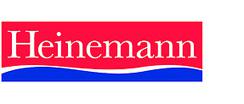- View more resources from this publisher
 Association for Science Education (ASE)
Association for Science Education (ASE)
Science in Society
A 1981 project which set out to bring non-specialist scientific literacy to the post-16 curriculum, Science in Society was one of the first high-profile UK science courses to include topics with wide political implications. A major influence on the choice and treatment of topics was the Club of Rome book (1972) called Limits to Growth. The report was based on modelling which explored how exponential growth interacts with finite resources. The main emphasis of the course was on the issues raised by the application of scientific knowledge but there was also a reader about the nature of science. The influence of the sponsors and expert contributors meant that there was an unusual emphasis on economics and the contributions of industry to the economy.
Resources
Filter
A reader from the Science in Society series which looks at the importance of good diet and nutrition. The book then considers the problems of food supply and distribution across the world from the viewpoint of the 1980s.
A reader from the Science in Society series which looks at the role of agriculture and farming in societies across the world in the 1980s. The book considers the need for energy in order to produce food, the use of eco-systems and food chains, and the effects of farming on the environment.
A reader from the Science in Society series which looks at society's use of electricity and considers nuclear power. The book then discusses alternative sources of energy and the risks that were envisaged in the 1980s.
A reader from the Science in Society series which looks at the mining industry, its geological background and the need to make better use of waste products.






